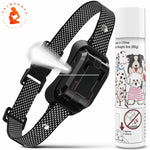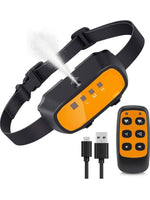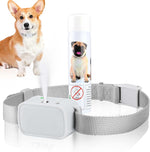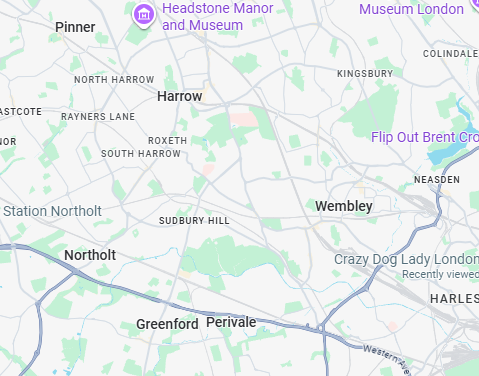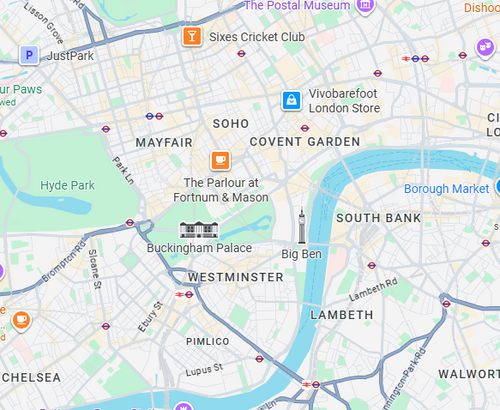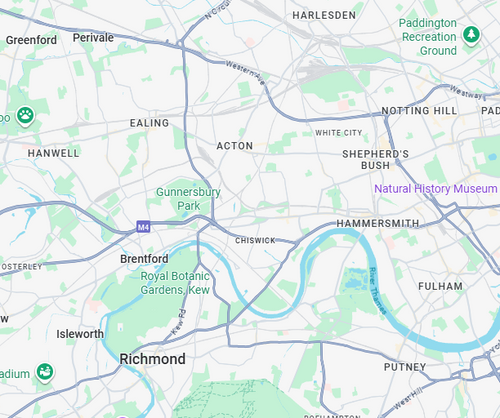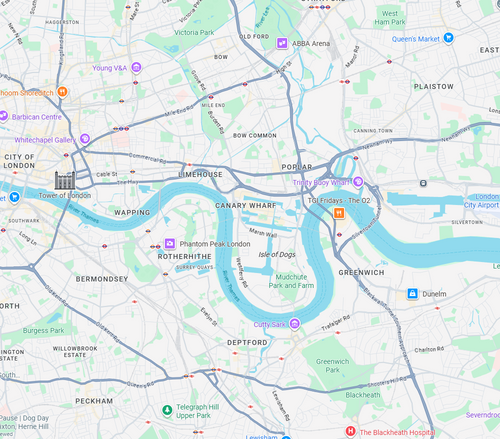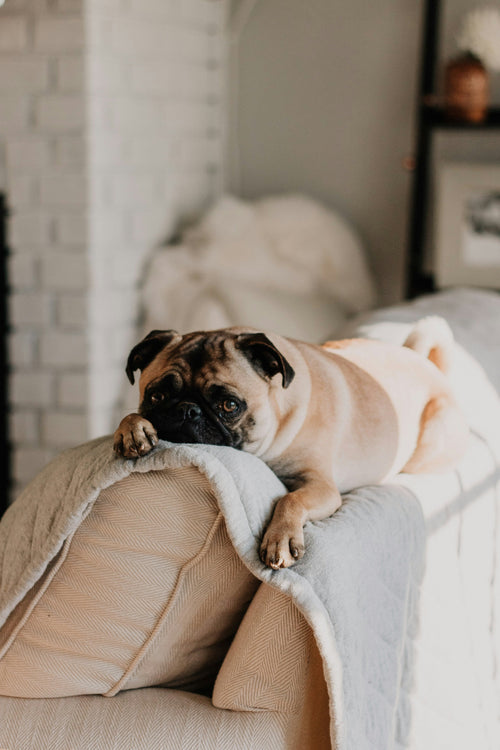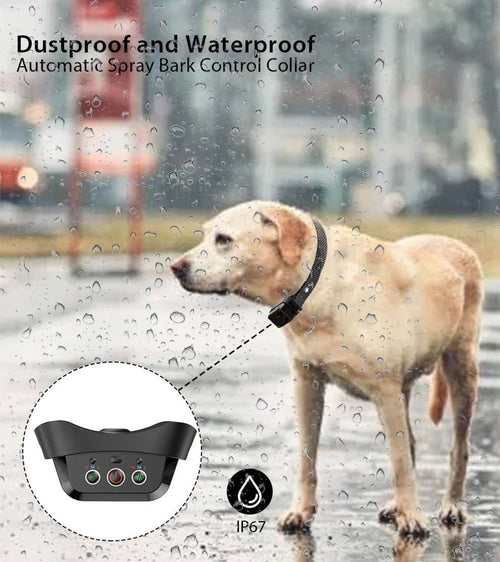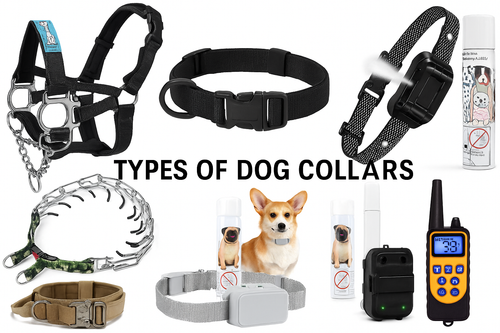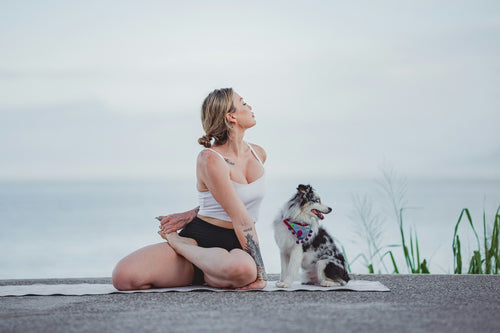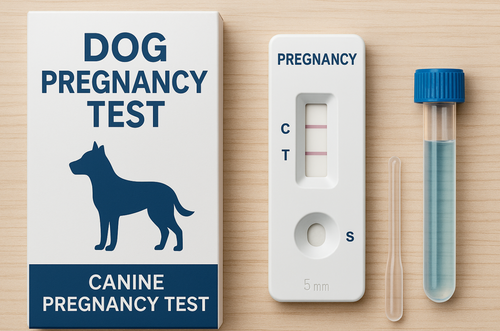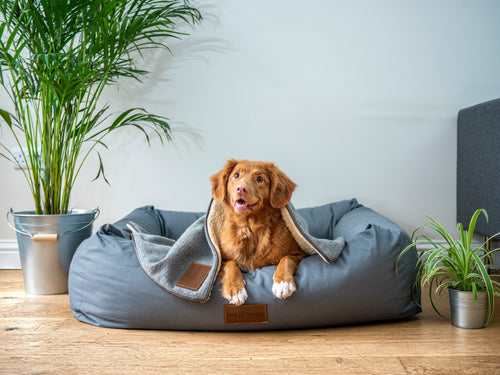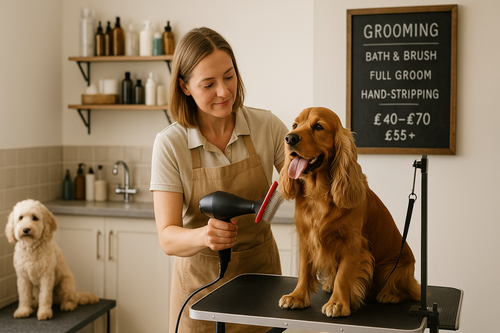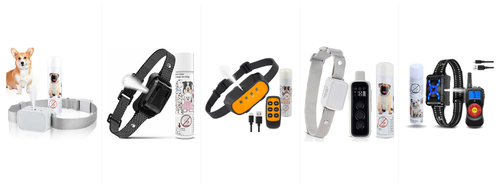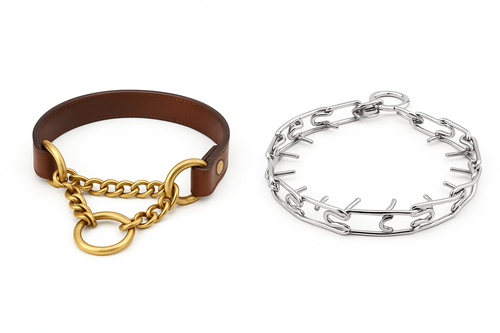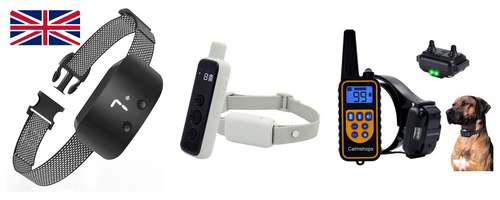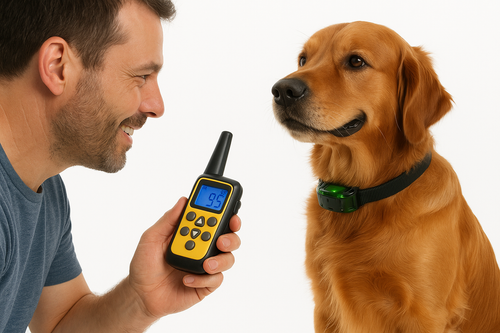There’s nothing more frustrating than a dog that won’t stop barking at night. Whether it’s disrupting your sleep or causing tension with neighbours, night-time barking is a common issue faced by many dog owners. The good news? There are reliable solutions.
In this comprehensive guide, we’ll explore how to stop dog barking at night using a range of techniques, environmental adjustments, and training tools—including Calmshops’ highly recommended automatic stop bark collars.

Why Do Dogs Bark at Night?
Before diving into solutions, it’s essential to understand why dogs bark at night. Some of the most common reasons include:
-
Boredom or lack of mental stimulation
-
Anxiety or separation stress
-
Territorial behavior when they hear other animals
-
Health issues or discomfort
-
Attention-seeking behavior
-
Lack of nighttime routine or boundaries
1. Rule Out Medical Issues First
If your dog has recently started barking at night and this is unusual for them, a vet check-up is the first step. Conditions like arthritis, UTIs, or cognitive dysfunction in older dogs can lead to discomfort and restlessness.
2. Provide Enough Exercise and Mental Stimulation
A tired dog is a quiet dog. Dogs with pent-up energy are more likely to bark due to boredom or excitement.
Daytime Activities That Help:
-
Long walks or jogs
-
Puzzle toys or treat-dispensing toys
-
Training sessions to challenge their mind
-
Socialisation with other dogs

3. Create a Comfortable Sleeping Environment
Make your dog’s sleeping area comfortable, quiet, and safe.
-
Use a crate or designated dog bed in a low-stimulation area
-
Play white noise or soft classical music
-
Use calming scents like lavender diffusers (pet-safe only)
Dogs who sleep in high-traffic or noisy parts of the house may feel the urge to bark at every little noise.
4. Use Anti-Bark Training Collars
If barking persists despite routine, environmental, and behavioural adjustments, anti-bark training collars can provide an effective and humane solution.
🛒 Calmshops Automatic Stop Bark Collars
At Calmshops.co.uk, we offer automatic stop bark collars that detect barking and respond with gentle vibrations, beeps, or citronella spray—no shocks involved.
Why Choose Calmshops' Collars?
-
Automatic detection and correction
-
No remote needed
-
Humane and adjustable settings
-
Waterproof and safe for nighttime use
-
Suitable for small, medium, and large dogs
These collars help reinforce silence during the night without requiring you to intervene—perfect for deep sleepers or multi-dog households.
5. Try White Noise Machines
Some dogs bark in response to sounds you might not even notice—passing cars, distant dogs, wildlife, or neighbours.
Using a white noise machine or fan can help block out these triggers and soothe your dog into sleep.
6. Establish a Nighttime Routine
Dogs thrive on routine. Create a consistent evening schedule to help them anticipate bedtime:
-
Final walk and toilet break
-
Light play or training (no high energy!)
-
Quiet time with cuddles or chew toys
-
Bedtime in the same place each night
Consistency reduces anxiety and confusion, both of which can cause barking.
7. Avoid Reinforcing the Barking
Many dog owners unknowingly reward barking by:
-
Speaking to the dog
-
Letting them out of the crate
-
Offering treats or toys to calm them
Instead, wait until your dog is quiet before rewarding with attention or comfort. Even saying “No!” could be perceived as attention.

8. Consider Crate Training
Crate training provides dogs with a sense of security and structure. A well-trained dog sees the crate as their safe haven and is less likely to bark once inside and settled.
Tips:
-
Make it cozy with blankets and a familiar toy
-
Never use it as punishment
-
Use calming treats at bedtime
9. Use Calming Aids
In addition to routine and training, calming products can help ease nighttime anxiety:
-
CBD treats (vet-approved)
-
Adaptil diffusers (synthetic calming pheromones)
-
Calming chews with ingredients like chamomile, melatonin, or valerian root
Pairing these with anti-bark collars creates a multi-layered solution that addresses both physical and behavioral triggers.
10. Monitor With a Pet Camera
Nighttime barking might occur when you're not aware of it. Installing a dog camera allows you to observe what’s triggering your dog.
It’s especially useful to:
-
Identify barking patterns
-
Determine if other animals are causing the barking
-
Monitor progress of collar or calming aid effectiveness
11. Obedience Training and Desensitisation
Professional dog trainers can help with:
-
Barking at specific triggers (cars, animals, wind)
-
Building independence for dogs with separation anxiety
-
Teaching the “quiet” command effectively
Often, barking is a symptom of a bigger behavioural issue, and a trainer can get to the root of the problem.
📋 Recap: Best Ways to Stop Dog Barking at Night
| Solution | Why It Works |
|---|---|
| Exercise | Reduces excess energy |
| Routine | Builds expectation of rest |
| White noise | Blocks external triggers |
| Anti-bark collars | Immediate, humane correction |
| Crate training | Provides comfort and structure |
| Calming aids | Reduces stress and anxiety |
| Obedience training | Targets root cause behavior |
When to Seek Professional Help
If your dog’s barking:
-
Is increasing in frequency or intensity
-
Is accompanied by pacing, whining, or destruction
-
Persists despite consistent training efforts
…it’s time to consult a vet or professional behaviourist.
Calmshops: Your Partner in Peaceful Nights
At Calmshops.co.uk, we offer a curated range of automatic stop bark collars, designed with your dog’s comfort and safety in mind. Whether your dog responds better to vibration, beep, or citronella, we have the solution to help you and your dog sleep soundly again.
All our collars come with:
-
30-day free returns
-
1-year warranty
-
Fast UK shipping
-
Customer support to help you choose the right option
📸 Suggested Infographic (mid-post):
Title: 6-Step Routine to Stop Dog Barking at Night
-
Evening Walk
-
Quiet Play
-
Final Toilet Break
-
Calming Chew
-
Bark Collar On
-
Lights Out & White Noise
Add icons for each step, branded in Calmshops colours for Shopify visual flow.
Conclusion
Knowing how to stop dog barking at night isn’t just about quieting the noise—it’s about understanding what your dog is trying to tell you and responding with compassion and structure. By combining consistent routines, behavioral training, and tools like Calmshops’ automatic stop bark collars, you can reclaim peaceful nights for everyone in your home.




